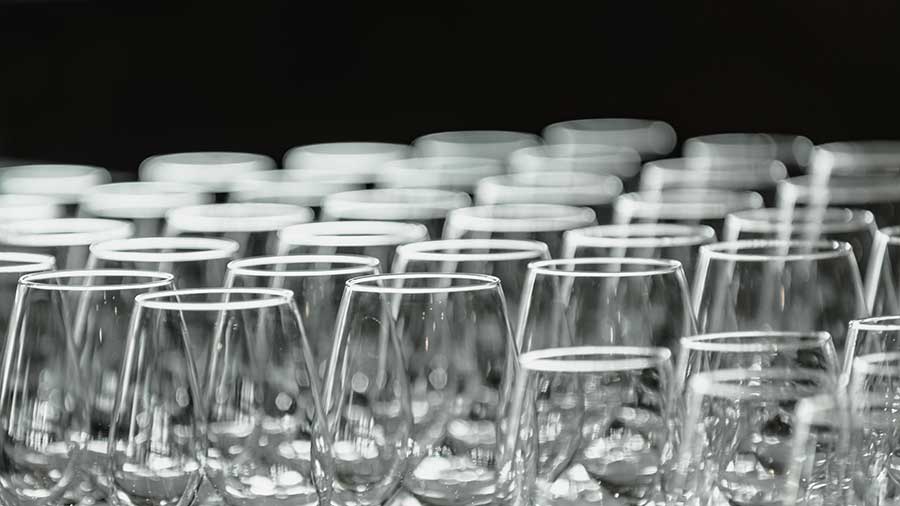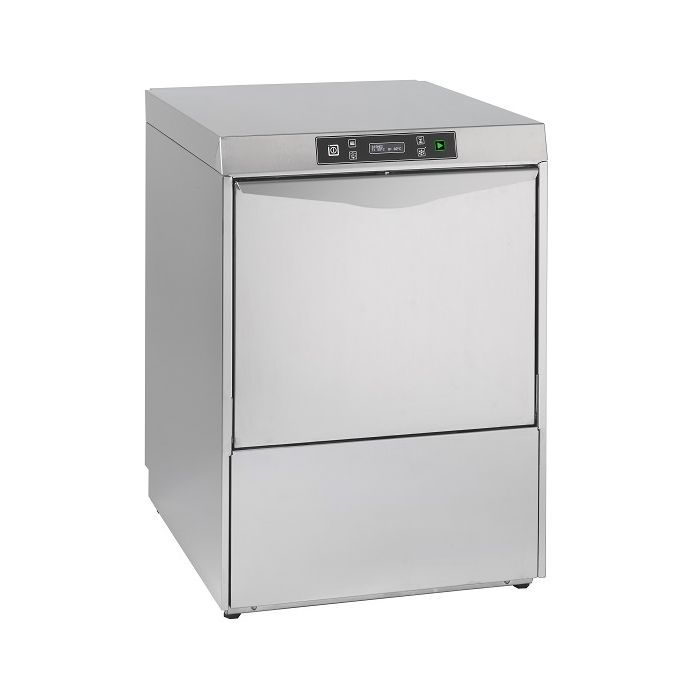

Nothing is worse than finding an unkempt glass on the table in front of you dining out. Or even finding out you have to redo the redwine glasses as they have watermarks on them.Here are several steps you can take to keep drinking glasses no less than sparkling in a restaurant:
Use a high-quality dishwasher detergent: Choose a detergent formulated explicitly for glasses with a high alkaline level to remove food and drink residues effectively.
A high-quality dishwasher detergent is specifically formulated to clean and remove food and drink residues from dishware and glasses. Some characteristics of a high-quality dishwasher detergent include the following:
High alkaline level: A high alkaline level helps to effectively remove grease and other food residues from dishware and glasses.
Enzymes: Some dishwasher detergents contain enzymes that help to break down food residues and make them easier to remove.
Rinse aid: A rinse aid helps to reduce water spots and streaks on dishware and glasses after they have been washed.
Phosphate-free: Some high-quality dishwasher detergents are phosphate-free, which means they do not contain phosphates that can harm the environment.
Biodegradable: A biodegradable dishwasher detergent breaks down quickly in the environment and leaves no harmful residue.
When shopping for a dishwasher detergent, it is important to read the label and choose a product that meets your needs and preferences.
Make sure to rinse off any food or drink residues before putting the glasses in the dishwasher. This will help prevent spots and streaks from forming on the glasses. Rinsing is an important step in cleaning the glasses.
Here are some steps you can follow to rinse glasses thoroughly before washing:
Rinse off any food or drink residues: Use a stream of water to rinse off any food or drink residues from the glasses. This will help prevent spots and streaks from forming during the washing process.
Use a pre-rinse sprayer: If your restaurant has a pre-rinse sprayer, rinse off any food or drink residue from the glasses. Pre-rinse sprayers are designed to remove food and drink residues from dishware and glasses effectively.
Use a soft, non-abrasive sponge or cloth: Use a soft, non-abrasive sponge or cloth to scrub the inside gently and outside of the glasses to remove any remaining food or drink residues. Be sure to use a gentle motion to avoid scratching or damaging the glasses.
When shopping for a dishwasher for your business, there are several factors to consider to help you choose a good one:
Capacity: Consider the size of your restaurant and choose a dishwasher with a capacity that meets your needs.
Speed: Look for a dishwasher with a high wash and rinse speed to help you keep up with the demands of a busy restaurant.
Features: Look for dishwashers that can help improve efficiency and reduce labour costs, such as automatic detergent dispensers and self-cleaning filters.
Energy efficiency: Choose a dishwasher with an Energy Star rating, which indicates that it meets strict energy-efficiency guidelines. Energy-efficient dishwashers can save money on energy bills and are better for the environment.
Price: Determine your budget and look for a dishwasher that fits within your price range.
Warranty: Look for a dishwasher with a good warranty to ensure that you are covered in case of any problems or defects.

At Spiteri Catering we have a full range of Dishwashers, accessories click here to see the full range
Overcrowding the dishwasher can lead to glasses not being washed properly. Make sure to leave enough space between glasses to allow the water and detergent to reach all surfaces of the glass.
Follow the manufacturer’s recommendations: Consult the owner’s manual for the dishwasher to determine the maximum capacity for dishware and glasses. This will help you avoid overcrowding the dishwasher and ensure that all items are adequately washed.
Leave enough space between items: Make sure to leave enough space between dishware and glasses to allow the water and detergent to reach all surfaces of the items.
Use the correct rack configuration: Some dishwashers have adjustable racks that can be configured to fit different types and sizes of dishware and glasses. Use the correct rack configuration to help ensure that all items are washed properly.
Wash large items separately: If you have large items that do not fit in the dishwasher, consider washing them separately by hand.
Water that is too hot or too cold can cause glasses to come out of the dishwasher with spots or streaks. Follow the manufacturer’s recommendations for the correct wash and rinse temperature.
Using the correct wash and rinse temperature is important to help ensure that your dishware and glasses come out of the dishwasher clean and without spots or streaks. Here are some tips for using the correct wash and rinse temperature:
Follow the manufacturer’s recommendations: Consult the owner’s manual for your dishwasher to determine the correct wash and rinse temperature. Different dishwashers may have different temperature requirements, so it is important to follow the manufacturer’s recommendations.
Use hot water for the wash cycle: Hot water removes food and drinks residues from dishware and glasses more effectively. The wash cycle should be set to the hottest water setting that is recommended by the manufacturer.
Use cold water for the rinse cycle: Cold water can help prevent spots and streaks from forming on dishware and glasses after they have been washed. The rinse cycle should be set to the coldest water setting that the manufacturer recommends.
After washing, make sure to dry glasses thoroughly to prevent spots and streaks from forming. You can either hand-dry glasses or use a dishwasher’s drying cycle if it has one.
Drying glasses thoroughly after washing is important to help prevent spots and streaks from forming on the glasses. Here are some tips for drying glasses thoroughly after washing:
Hand-dry glasses: After washing glasses in the dishwasher, you can hand-dry them by wiping them down with a clean, lint-free cloth. Make sure to dry the inside and outside of the glasses to remove any water droplets.
Use a dishwasher’s drying cycle: Some dishwashers have a drying cycle that uses heat to dry dishware and glasses. If your dishwasher has a drying cycle, use it to help ensure that your glasses are dried thoroughly.
Avoid stacking glasses until they are completely dry: Stacking glasses while they are still wet can cause spots and streaks to form on the glasses. Make sure to allow the glasses to dry completely before stacking them.
There are several steps you can take to store glasses to keep them clean:
Clean and dry glasses thoroughly before storing: Make sure to clean and dry glasses thoroughly before storing them to prevent dirt and grime from accumulating on the glasses.
Store glasses in a dry, cool place: Avoid storing glasses in humid or damp environments, as this can cause spots and streaks to form on the glasses.
Avoid stacking glasses: Stacking glasses can cause them to become scratched or chipped. Instead, try to store glasses in a single layer or use a glass rack to keep them organized and prevent them from being stacked.
Cover glasses with a protective cover: If you need to stack glasses, consider using a protective cover, such as a cloth or paper towel, to prevent them from coming into contact with each other.
